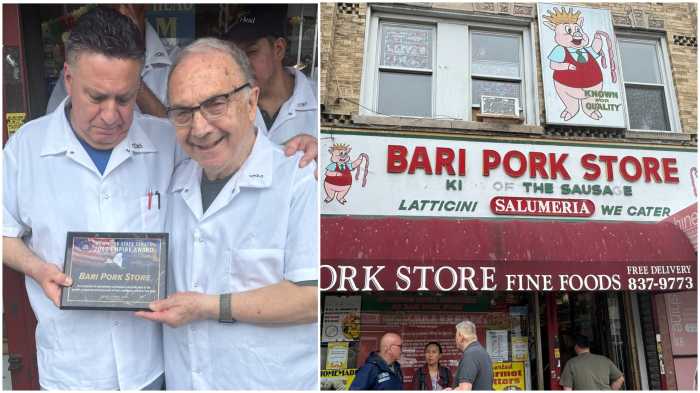‘Jeremiah Tower: The Last Magnificent’
Documentary directed by: Lydia Tenaglia
Rated R
Playing at Landmark Sunshine Cinema
The task at hand in the documentary “Jeremiah Tower: The Last Magnificent” is a mighty one: Create a portrait of a larger-than-life yet private personality.
Who is Jeremiah Tower? Depending on whom you ask, he’s the “father of American cuisine” (Martha Stewart) who “changed the world” (Anthony Bourdain, an executive producer on the film). They’re among the famous faces brought in to sing the praises of Tower — arguably America’s first celebrity chef, but someone who lacks name recognition outside culinary circles.
The story of Tower is certainly a remarkable one warranting the documentary treatment. Without any formal training, he put the groundbreaking Berkeley, California, restaurant Chez Panisse on the map during the 1970s, then moved on to his famed eatery Stars, in San Francisco, during the 1980s and ’90s. When he came out of relative obscurity to run the kitchen at Tavern on the Green in 2014, it was baffling and exciting news.
As the pretentious title might imply, there’s a lot of high-mindedness here. That’s especially the case in the first third of the movie, which begins with Tower walking among ruins in Mexico, in voice-over saying, “I have to stay away from human beings because somehow I am not one.” Um, OK. It chronicles his childhood and nascent love affair with food through weird re-enactments of him as a child and teenager.
But if you stick with it, the documentary, directed by Lydia Tenaglia (a frequent collaborator with Bourdain), really picks up when it moves into Tower’s first restaurant venture — helming the kitchen at Alice Waters’ groovy Chez Panisse. In walks Tower, armed not with a culinary degree but a masters in architecture from Harvard. He’s serious, sexy, with big ambitions.
Praise — and drama — follows, as Tower and Waters eventually have a falling out (she’s noticeably absent among the documentary’s interview subjects).
From there, a look back at Tower’s legendary Stars restaurant also brings some juicy flavor, with TV clips and photos bringing the now-shuttered space back to life. Why Stars closed (in 1999) is confusingly revealed throughout the last act, which follows Tower’s brief reign at the troubled Tavern on the Green.
Tenaglia seemed to be in the right place at the right time, detailing almost day-by-day the chef’s modern comeback. It feels like a completely different documentary here — absent of any of the film’s earlier pretense, and reveling in the drama that unfolds. As the camera follows him in the kitchen, his studio apartment and wandering through Central Park, you get a brief glimpse of the grand figure described earlier — funny, serious, demanding and lonely.
For all its access, there’s still not much revealed about the chef throughout this equal parts frustrating, muddled and riveting film. Beyond bits from his childhood, we don’t see any of his current personal life, or learn really what he’s doing now (random footage hinted at something to do with renovating houses in Mexico). The chef remains somewhat of a mysterious figure, which is probably how he wants it. Tower, we’ve seen, likes to do things on his own terms — this documentary seems to be the case.




































